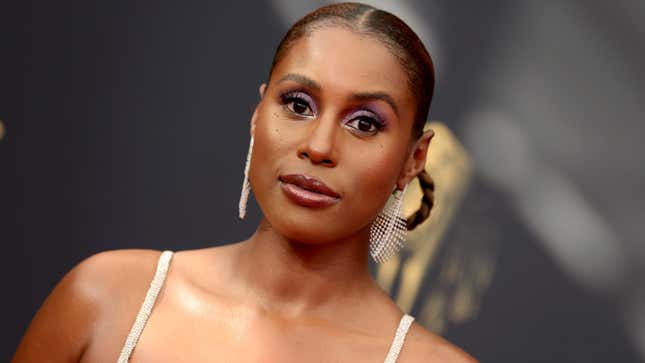Saturday Night Social: Issa Rae Reflects on Insecure
"We don't often get two dark-skinned Black woman leads. So that was a mandate for us, to make sure that was showcased."
EntertainmentSaturday Night Social

With the end of Insecure in sight—the comedy’s fifth and final season premieres Oct. 24 on HBO, in case you didn’t already know—The New York Times gathered together six of the key people behind the Golden Globe-nominated series to discuss the show’s impact, why it worked, and what it (hopefully) made room for.
Towards the end of their conversation, creator and star Issa Rae—alongside director and executive producer Melina Matsoukas, executive producer Amy Aniobi, showrunner Prentice Penny, and co-stars Yvonne Orji and Jay Ellis—reflected on how Insecure depicted friendship between two dark-skinned Black women.
The full “remote roundtable” is definitely worth reading (right here!), but this exchange between Times contributing critic Salamishah Tillet and Orji, Rae, Matsoukas, and Aniobi, in particular, stood out:
TILLET: Making a complex friendship between two dark-brown complexioned Black women, Molly and Issa, the heart of the show still seems rare, even today.
ORJI: That was very refreshing to see that casting breakdown and realize, “Hold up, she’s talking about me.”
RAE: This is based off my real friendship. So I wasn’t interested in the trope of one light-skinned and one dark-skinned friend. I was very interested in staying true to that authentic friendship, and we often don’t get two dark-skinned Black woman leads. So that was a mandate for us, to make sure that was showcased.
MATSOUKAS: We really wanted to be a part of redefining what beauty looked like. I remember going to film school and them being like, “If you cast a Black woman as your lead, it won’t be a marketable film.” That’s literally what I was taught in school. So to show that beauty exists in all different shades and colors, and that these women and can just be as sexy as anyone else, was really important for all of us.
ANIOBI: Some of the storytelling felt almost like wish fulfillment for us as dark-skinned Black women. It was exciting to be like: “If we were the center of the story, what would happen? How would it happen?” There was so much of it, especially in the early seasons, where we were like, “Well, what would you expect if it were your story?”
RAE: Portraying a desirable dark-skinned lead over the years — this is something I’m only recognizing now — greatly increased my own sense of self, too. My life would be completely different had we not written those characters that way. I don’t think I’ve ever attributed this to the show and to the portrayal of this lead. I wrote myself with more confidence, and now I get to live that out and portray it, too.